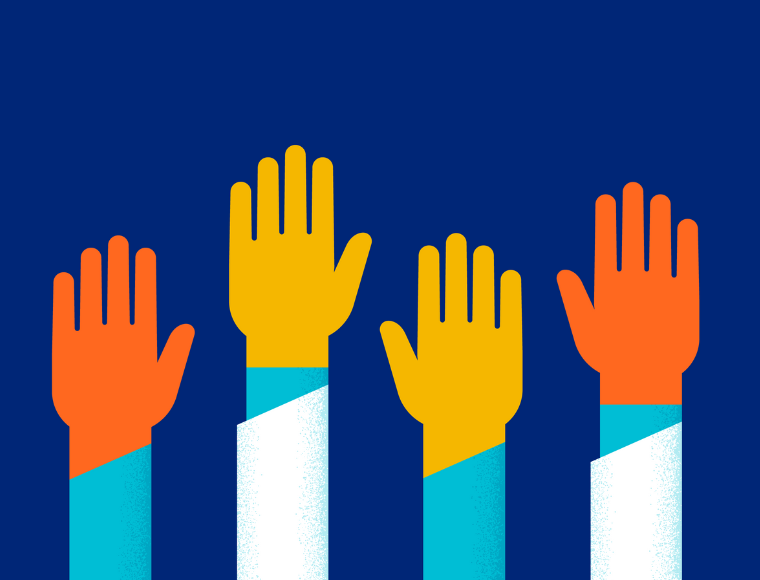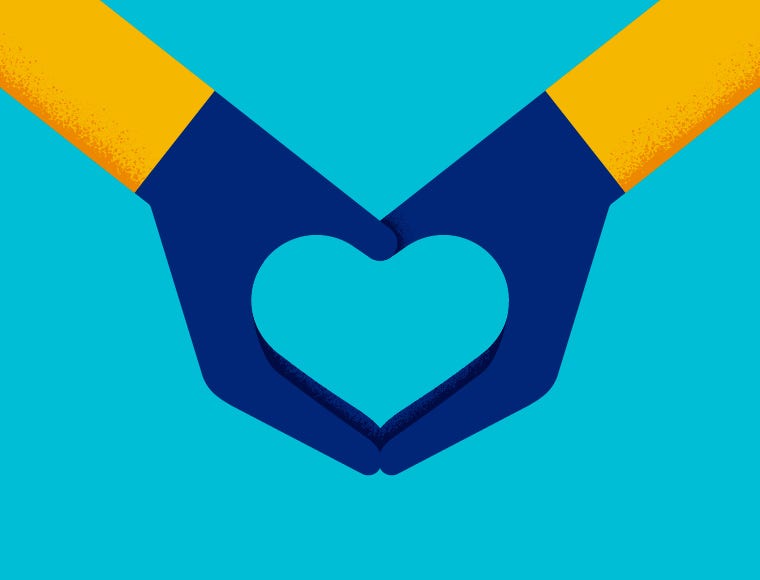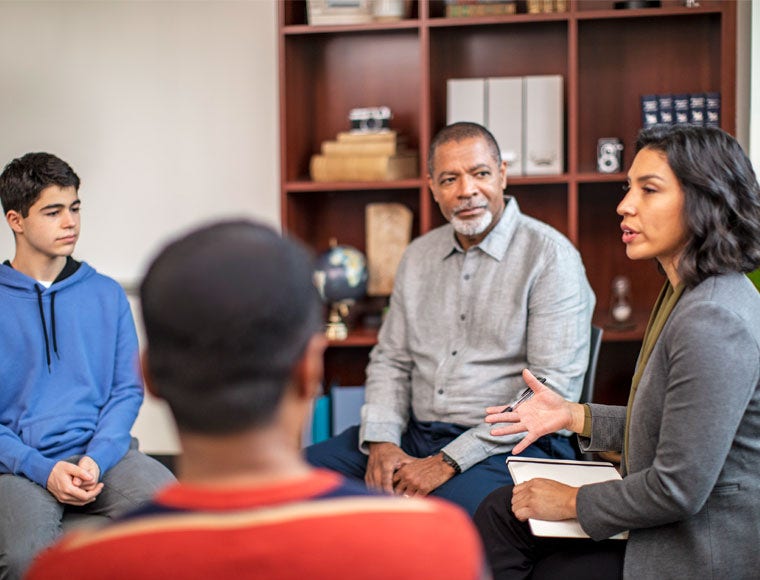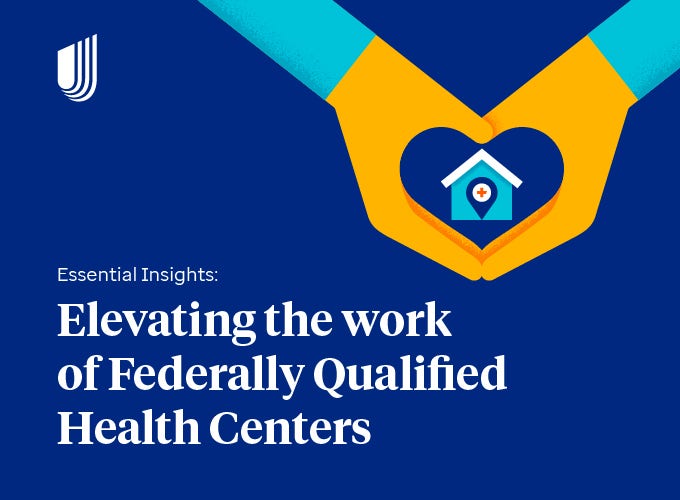According to Mental Health America, nearly 20% of U.S. adults are experiencing a mental illness. That’s equivalent to nearly 50 million Americans.1 A skills-based training course that teaches people about mental health and substance-use issues is essential for understanding and addressing mental health needs. That's why UnitedHealthcare Community Plan of Kansas is offering Mental Health First Aid trainings to communities in Kansas.
Mental Health First Aid (MHFA) is an evidence-based training program administered by the National Council for Mental Wellbeing that teaches people how to identify, understand and respond to signs of mental health and substance-use challenges.
At UnitedHealthcare Community Plan of Kansas, we're supporting this program by leading Mental Health First Aid trainings in our local communities. The training gives participants the skills to reach out and provide initial help and support to someone who may be developing a mental health or substance-use challenge or may be experiencing a crisis. More than 2.6 million people within the United States have been trained in MHFA by over 15,000 instructors.
Ways to learn
The training is offered in multiple forms:
- In-person – Learners receive their training via an instructor-led, in-person course.
- Blended – Learners complete a self-paced online course and participate in an instructor-led training. The training is delivered either through a video conference or an in-person class.
Ultimately, the goal is for participants to leave the course with resources and a step-by-step plan to help others.
How the program provides aid
Attendees receive a five-step action plan centered around:
- Common signs and symptoms of mental health challenges
- Common signs and symptoms of substance-use challenges
- How to interact with a person in crisis
- How to connect a person with help
- Expanded content on trauma, substance use and self-care
During the in-person class, we provide participants with a list of resources they can take with them. In addition to sharing MHFA-provided training materials and resources, we facilitate deeper discussions around mental health. We talk about how social determinants can affect a person’s health. And we discuss the challenges in accessing mental health care and medical care, along with the issues young people, in particular, may face.
Indicators of success
The success of the program is measured through pre- and post-work that participants fill out. Participants self-report their level of comfort and confidence in addressing mental health challenges and crises. From these scores, we're able to see that participants leave these trainings feeling more prepared to identify and address mental health and substance-use challenges. At a larger scale, we also use County Health Rankings to underscore how health outcomes differ across counties and why these trainings are so important in our communities. Using the search tools on the County Health Rankings website, we can look up community-specific data to better understand access to care, social determinants of health, and health outcomes in a particular zip code.
Expanding mental health reach
MHFA has provided an important opportunity to expand the definition of care to include whole-person health, rather than just physical health. Through our partnerships with local Federally Qualified Health Centers (FQHC) and the Association of Community Mental Health Centers, we've been able to expand the reach of these programs.
Those who have attended recent trainings in Kansas include parents, teachers and coaches focused on understanding youth mental health. Bilingual trainings have also been critical in bringing these resources to Spanish-speaking individuals and communities.
Creating ripple effects
It’s powerful to see the transformation and growth of people from the time they start training to completion. Participants have been excited to learn that there are spaces to talk about mental health, learn more and ask questions in a safe environment.
We dispel myths about mental health and provide opportunities for self-reflection. People walk away from the trainings feeling more equipped and confident to address mental health, recognize crisis in others, and be advocates for raising awareness in their communities. All of this creates a ripple effect in their households, workplaces, and communities.
Serving a greater purpose
Through Mental Health First Aid training events, we’re not just serving one person; we are equipping each person to serve other people. As a result, communities are supported with tools and resources to help address mental health and substance-use, reduce stigma, and empower people to advocate for mental health awareness.
Learn more about MHFA at https://www.thenationalcouncil.org/our-work/mental-health-first-aid/.











